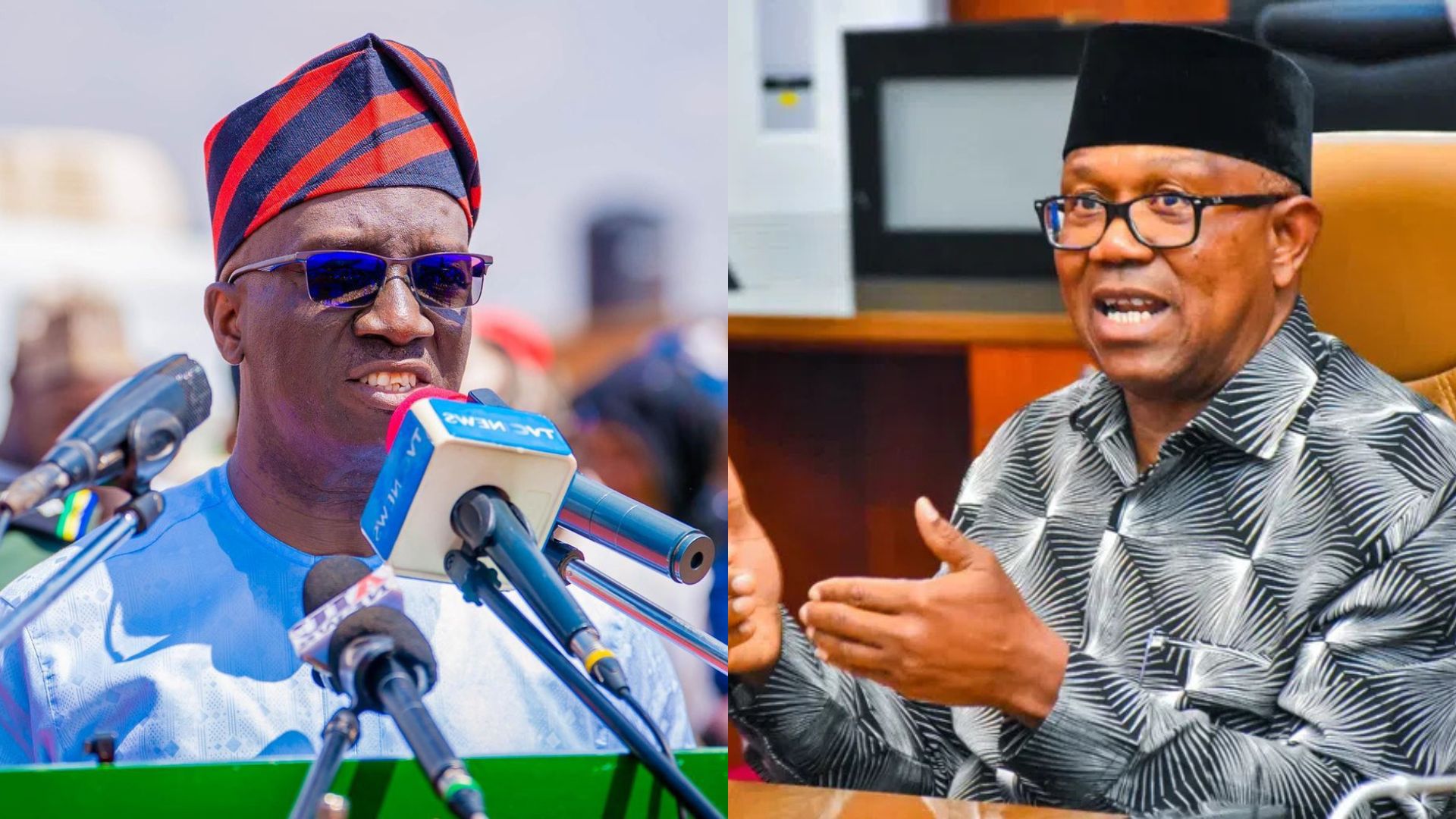Don't come to Edo without security clearance - Okpebholo warns Peter Obi

Edo Governor Okpebholo Demands Security Clearance for Peter Obi's Visits Edo State Governor, Senator Monday Okpebholo, has issued a strong warning to Peter Obi, a prominent figure and potential presidential contender in the 2027 elections, stating that he must obtain security clearance before any future visits to the state.
Governor Links Obi's Visit to Increased Violence The Governor's directive follows Obi's visit to Edo State on July 7, 2025, during which he donated N15 million to St. Philomena Hospital School of Nursing Sciences. Okpebholo has publicly criticized the visit, alleging that it occurred without proper security authorization and coincided with a resurgence of violence within the state.
Defection Announcement Accompanied Warning Okpebholo made the statement while formally receiving Marcus Onobun, previously the sole opposition federal lawmaker from Edo, into the All Progressives Congress (APC). Onobun also condemned Obi's visit during the event held on Friday, July 18, 2025.
Okpebholo's Concerns and Allegations “That man who says he has no ‘shishi’ came and dropped ₦15 million. Where did he get it from? After he left, three people were killed. For this reason, Obi must not come to Edo without security clearance,” Okpebholo stated. He further asserted, "His visit coincided with a resurgence of violence in the state and this will not be tolerated.”
Political Context and Implications The Governor also used the occasion to declare the APC's dominance in Edo State, claiming Onobun's defection as the final blow to the Peoples Democratic Party (PDP) in the region. He confidently predicted a landslide victory for President Bola Tinubu in Edo during the 2027 general elections, estimating 2.5 million votes.
Accusations of Corruption Against Opposition Figures Okpebholo went on to accuse key figures within the opposition of widespread corruption and mismanagement. He alleged their involvement in the failure of national infrastructure projects and their contribution to the country's insecurity challenges. He also criticised them for switching between parties. "Some of them stole railway funds. Some were Senate Presidents for years and could not build roads to their villages. Some sold off Nigeria’s assets and even ushered in Boko Haram and kidnappers. These same people now want to form new parties. Today, SDP, tomorrow ADC, next ADA. We do not need insecurity merchants,” the Governor declared.
Expert Analysis: Balancing Security Concerns and Political Freedom Political analyst, Dr. Aisha Bello, weighed in on the situation, stating, "While governors have a responsibility to ensure the security of their states, imposing restrictions on the movement of political figures raises concerns about the suppression of political activity. The timing of this warning, coinciding with Onobun's defection, adds a layer of political complexity. It's crucial to strike a balance between legitimate security concerns and the fundamental right to freedom of movement and association, especially in the lead-up to the 2027 elections."
Historical Context: Political Tensions and Security in Edo State Edo State has a history of political volatility, particularly during election periods. Past elections have been marred by violence and allegations of rigging. This context informs the Governor's emphasis on security, even as it raises questions about potential political motivations. The call for security clearance can be seen as a measure to control the political landscape and prevent potential disruptions, but critics argue that it could also be used to stifle dissent and limit the opposition's ability to campaign effectively.
Security Analyst Perspective David Ekhator, a security consultant based in Benin City, stated, "Edo State, like many others in Nigeria, faces real security challenges, including cultism and occasional outbreaks of violence. While the Governor's concerns are understandable, the demand for security clearance should be clearly defined and transparent to avoid being perceived as a political tool. There needs to be a clear articulation of the criteria for granting or denying such clearance to ensure fairness and prevent abuse of power."
Originally sourced from: pulse Ng
